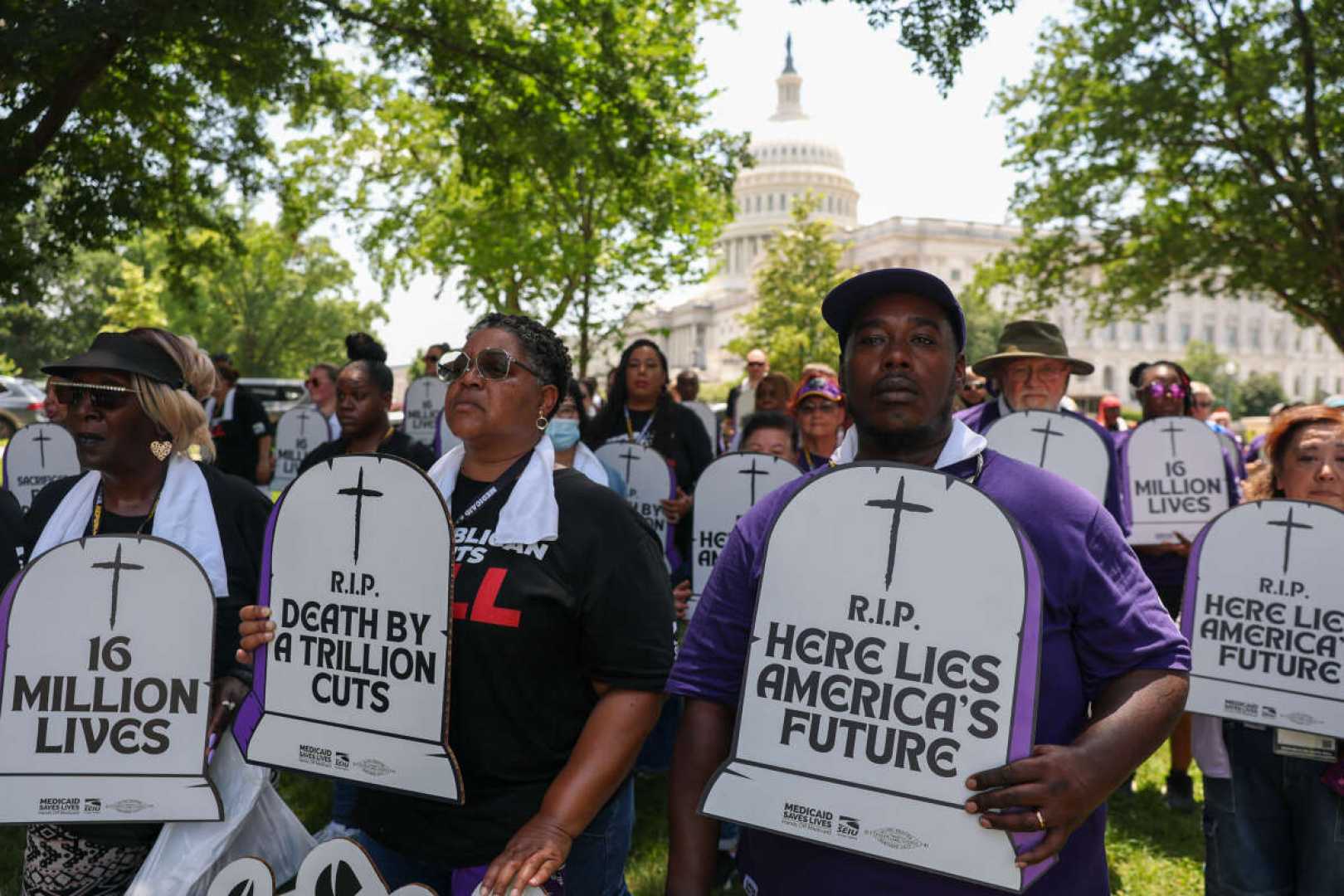Politics
Senate Republicans Face Backlash Over Medicaid Cuts Ahead of 2026 Elections

Washington, D.C. — Senate Republicans are grappling with the political ramifications of a Medicaid overhaul proposed by President Donald Trump. With the 2026 reelection season approaching, GOP lawmakers are voicing concerns over the impact of Medicaid cuts in their states.
Senator Susan Collins of Maine is advocating for a provider relief fund to alleviate potential losses. Senator Thom Tillis of North Carolina has warned that many in his state could lose access to care, while Senator Joni Ernst of Iowa is facing increasing scrutiny from Democratic challengers revitalized by town hall protests.
An analysis from KFF estimates that tens of thousands could lose coverage in each of the three senators’ states under the Republican-led House version of the bill. Democrats hope emphasizing health care issues can undermine the GOP’s 53-seat Senate majority.
The Congressional Budget Office has projected that the proposed changes could reduce federal Medicaid spending by approximately $800 billion over ten years. These savings would primarily come from work requirements for certain adults and delaying a rule aimed at simplifying Medicaid enrollment.
Brad Woodhouse, executive director of Protect Our Care, criticized the bill’s implications for low-income Americans. “It is crazy politics for them to do this,” he said. “Unless you are a millionaire or billionaire, no one is going to be happy with this bill.”
In their defense, Republicans claim that the Medicaid cuts are necessary to maintain the program’s integrity. Paul Shumaker, a North Carolina GOP strategist, expressed optimism about voter support, asserting that Republicans are addressing waste within the system.
As Democrats focus their campaign on health care issues, Ernst has recently faced backlash after her comments in a town hall meeting, where she stated, “well, we all are going to die,” in response to concerns over Medicaid cuts. Her spokesperson reaffirmed her commitment to protecting Medicaid for vulnerable populations.
In Iowa, state Representative J.D. Scholten announced his candidacy against Ernst, as voter dissatisfaction grows. “We’re seeing people calling Ernst ‘Joni Hearse,’” Scholten stated, indicating a potential shift in voter sentiment.
Democratic voters like Melinda Magdalene Wings express concern about the cuts. Wings, a retired hospice nurse, emphasized the potential loss of support for facilities caring for the elderly. “Money going to millionaires doesn’t make any sense,” she asserted.
Senators Tillis and Collins shared their worries about the implications of the reconciliation bill on their states’ health care systems. Collins mentioned her concerns regarding the operational viability of rural hospitals.
Republican leader Mitch McConnell urged party members to remain steadfast, stating during an internal meeting that “failure is not an option.” Democrats quickly responded to his remarks, implying that Republicans would face consequences at the polls.
According to a Congressional Budget Office analysis, nearly 8 million more Americans could become uninsured by 2034 as a result of the proposed Medicaid provisions, which include work requirements for able-bodied adults. The Senate recently introduced an expansion of these requirements.
The GOP argues their reforms aim to sustain Medicaid for those who need it most. Nick Puglia, a spokesperson for the National Republican Senatorial Committee, stated, “Voters will reject Democrats’ lies and fearmongering.”
As the debate continues, the balance of public opinion appears divided. A recent poll found that while many support certain provisions, overall, 42% of Americans oppose the bill. The support for work requirements drops significantly when their effectiveness is debated.
Health policy experts warn that cuts to Medicaid could lead to broader ramifications, particularly for healthcare providers serving low-income patients. “When you’re pulling dollars out of the system, it doesn’t just hurt the patients who no longer have insurance,” said Adrianna McIntyre, a Harvard health policy professor.












